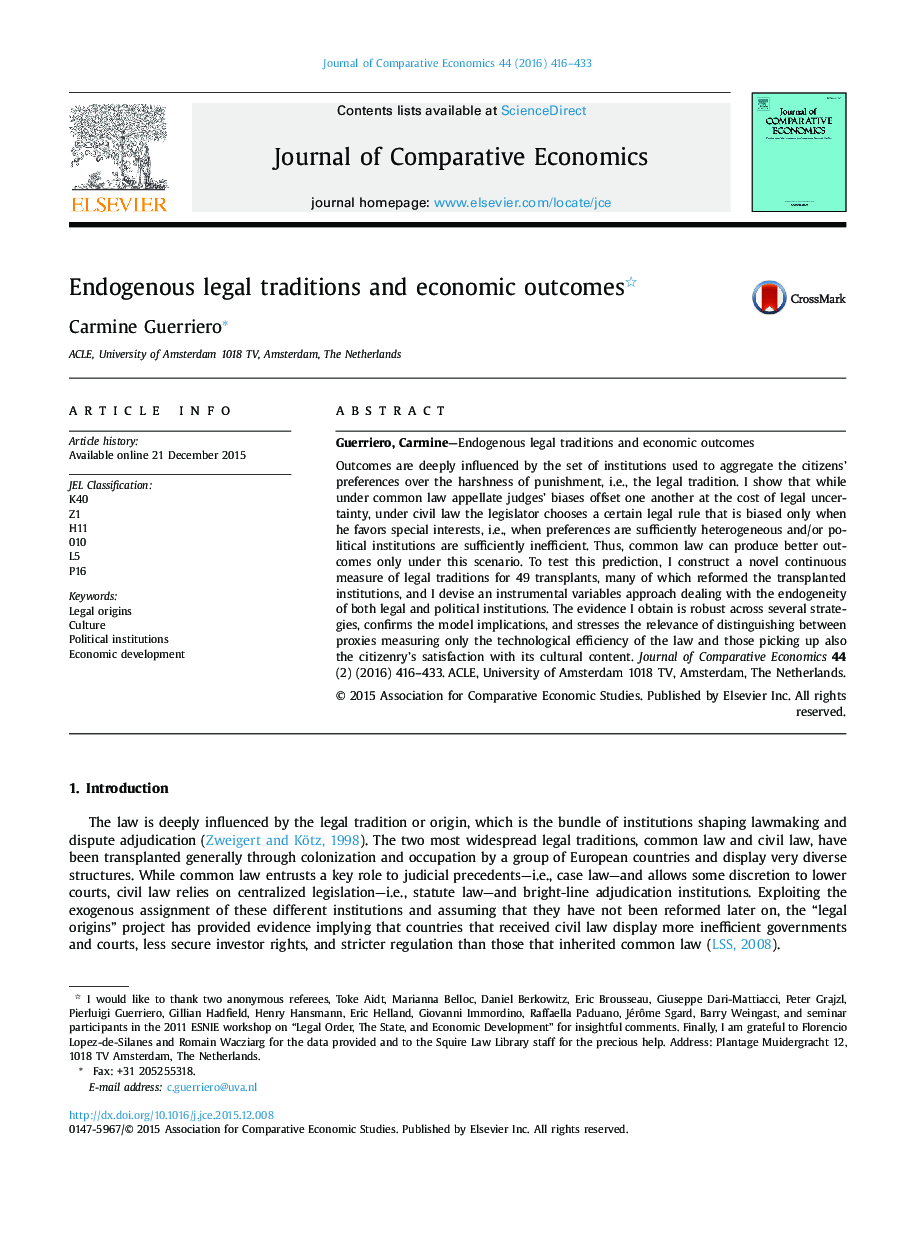| Article ID | Journal | Published Year | Pages | File Type |
|---|---|---|---|---|
| 5092294 | Journal of Comparative Economics | 2016 | 18 Pages |
â¢A jurisdiction's legal tradition deeply influences its economic outcomes.â¢Because of heterogeneous appellate judges' preferences, common law is unbiased but volatile.â¢Civil law is certain but biased if preferences (political institutions) are sufficiently heterogeneous (inefficient).â¢Common law can produce better outcomes only when civil law is biased.â¢Instrumental variables estimates based on data from 49 transplants confirm this prediction.
Outcomes are deeply influenced by the set of institutions used to aggregate the citizens' preferences over the harshness of punishment, i.e., the legal tradition. I show that while under common law appellate judges' biases offset one another at the cost of legal uncertainty, under civil law the legislator chooses a certain legal rule that is biased only when he favors special interests, i.e., when preferences are sufficiently heterogeneous and/or political institutions are sufficiently inefficient. Thus, common law can produce better outcomes only under this scenario. To test this prediction, I construct a novel continuous measure of legal traditions for 49 transplants, many of which reformed the transplanted institutions, and I devise an instrumental variables approach dealing with the endogeneity of both legal and political institutions. The evidence I obtain is robust across several strategies, confirms the model implications, and stresses the relevance of distinguishing between proxies measuring only the technological efficiency of the law and those picking up also the citizenry's satisfaction with its cultural content.
